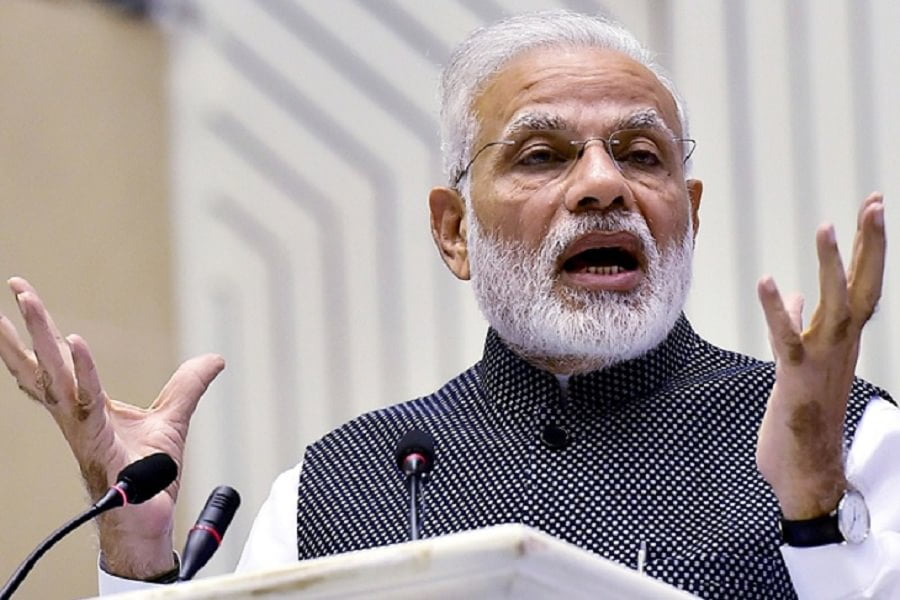Maternal cash benefits for women: A fact check
November 2016, I was at a Community Health Center in the Rohat Block of Rajasthan, training nurses in hygiene practices during delivery process. As a part of my training, I enquired about the “other” issues they discuss with the woman who comes to them when she is pregnant. These included taking iron and folic acid tablets, proper diet, exercise, regular checkups, information on immunization for self and baby, birth registration; etc.
I curiously asked them about the maternal cash benefits that are received. While few mentioned that it exists and women get INR 1400 for institutional deliveries, they also knew that they and the ASHA workers get cash incentive for institutional delivery and referral respectively, and that there was a provision for Desi Ghee, what they seemed clueless was if it was anything more than that. This was all they remembered from the Janani Suraksha Yojna (JSY). They also said, that many a times, these funds never reached the mother on time due to lack of money at government level.
Coming down to the present day where the Honorable Prime Minister created headlines by re-announcing an already present benefit for the mothers who deliver in institutions, a cash incentive of INR 6000. While all Modi supporters around me shouted slogans of his praise, I sat there wondering if I am back in the year 2013.
As a Universal Maternity Entitlement, the announcement of INR 6000 benefit for institutional deliveries has been a promise that has been already mandated under the National Food Security Act of 2013. While the ‘mandate’ existed, the government chose not to implement it. Reasons? Unknown.
So, what was claimed by the Hon. PM?
- INR 6000 to all pregnant women who go to a hospital for institutional delivery.
- Scheme to be floated across 650 districts
- Money transferred directly to bank accounts.
- Compensating for wages lost due to pregnancy and access to nutrition necessary for health of mother and child
- This is especially, for unorganized sector.
Why it sounded familiar?
- In 2013, the National Food Security Act (NFSA) mandated “Maternity benefits of not less than six thousand, in installments, as prescribed by the Central Government” to be paid to all pregnant women.
- The scheme is already running in 53 districts in the country, in pilot mode. Enactment of this clause meant universalizing the Indira Gandhi Matritva Sahyog Yojna (IMGSY).
- References to lack of budgetary provisions making the scheme difficult to be universalized.
Everything sounds perfect. Then what is the problem? Well, our Prime Minister made absolutely no-reference to the pre-existing legislation, perhaps showcasing that this was a novel scheme. He could have easily promised better implementation of the National Food Security Act of 2013.
What was even amusing?
- Schemes like these are being run in Tamil Nadu and Odisha on State funds given the Centre has failed to provide budgetary allocations for the same. Tamil Nadu’s Muthulakshmi Reddy Maternity Benefit Scheme that was launched in 1987 (around 30 years back) for women in below poverty line homes, provided INR 300 per mother. Since 2011, that amount has grown to INR 12,000 per mother. And in Odisha, the Mamata Scheme is a universal maternity entitlement of INR 5000 to all mothers. No mention was made on this. Why?
- No mention was made again of the scheme being a conditional cash transfer or unconditional i.e. is it for a particular group, age bracket, number of children, what informal sectors etc. This being said, giving half information is worse than any. And we know how that has been in a country of extremes like India.
- No reference was made of support structures for a mother to go back to work (crèche services?). If we say it is for the informal sector women, why are we still unable to mandate crèches in informal sector jobs?
- There are just way too many schemes running under the cause of Maternity Benefits and there hasn’t been any approach towards streamlining them universally in the country.
In our country, schemes and policies are often implemented years ahead of their announcement. But with reference to this coming up as something totally new and novel, for the benefit of universal good of mothers of this nation, I have my serious doubts.
Yes, some will argue it is the implementation that is now being done. I will just say, lets just wait and watch where these thousands of crores of funds will be allocated from in the coming budgetary announcements. Hope the common people in India don’t forget about this legendary New Year Eve announcement, legendary for no reason.
Hopefully, maternal health is seen more than a mere cash incentive project.
Also read: Patriarchy And Maternal Health: Why India Needs To Act Immediately
References:
About the author(s)
Dr. Suchi Gaur works at the intersection of gender, health and technology at the grassroots level, bridging the gaps of access and delivery for the marginalized, creating impact at the policy as well as the ground level.




